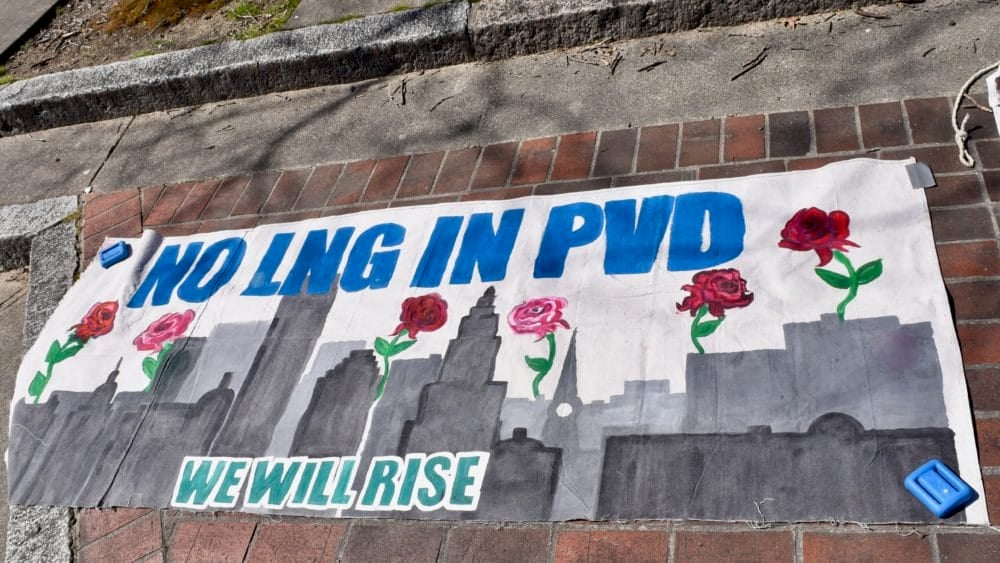We still don’t need fracked gas: New report shows ISO got it wrong
A new report shows that ISO-New England used unreasonable assumptions in its Operational Fuel Security Analysis released on January 17, 2018. ISO’s original analysis demonstrated “significant grid reliability issues and rolling blackouts under almost all scenarios studied.” But when the analysis was conducted with reasonable assumptions, “reliable electricity service, with no rolling blackouts, is likely in an extreme 2024/25 winter
May 3, 2018, 2:07 pm
By Steve Ahlquist
A new report shows that ISO-New England used unreasonable assumptions in its Operational Fuel Security Analysis released on January 17, 2018. ISO’s original analysis demonstrated “significant grid reliability issues and rolling blackouts under almost all scenarios studied.” But when the analysis was conducted with reasonable assumptions, “reliable electricity service, with no rolling blackouts, is likely in an extreme 2024/25 winter without any increase in regional gas infrastructure if states continue to implement current policies.”
ISO New England runs the region’s electrical system. As Gordon van Welie, CEO of ISO New England explains,
“Our mission is to achieve reliability through wholesale markets and we’re technology neutral. So ultimately, as long as the resources are providing us the reliability services that we need, we don’t care where the energy is coming from, and that’s by the design.
“In the context of being market neutral we’re also independent of all market participants. We set up as a not-for-profit, and we’re not allowed to have any financial interest in any entity that operates in the market.”
The report was undertaken by Synapse Energy Economics on behalf of Conservation Law Foundation (CLF), Acadia Center, New Hampshire Office of the Consumer Advocate, PowerOptions, RENEW Northeast, and Vermont Energy Investment Corporation.
“Even in extreme winters far colder than this year’s, New Englanders don’t need to worry about ISO’s ability to keep the lights on as we transition away from fossil fuel electricity,” said David Ismay, Senior Staff Attorney at CLF. “ISO’s initial predictions unnecessarily sounded the alarm based on flawed assumptions and unrealistic scenarios that ignore what the states are already doing to increase system reliability. But ISO’s revised analysis using corrected data proves that the reliability of our energy system will only improve as we continue our move away from harmful fossil fuels like gas and add more clean energy like solar and wind to the grid.”
Though ISO New England is by law technically neutral about the source of energy its provides to he public, in fact CEO Gordon van Welie, quoted above, is known for his stated preference for fracked gas.
For instance, Kathryn R Eiseman at CommonWealth writes, “When I participated in a small-group, sit-down meeting in late 2014 with Gordon van Welie, the ISO’s CEO, a disconnect was palpable – between how we envision a sustainable power system, and the vision held by the ISO’s leadership. Van Welie did not dispute the impacts of climate change, but told us that he expects things to get very ugly in that regard before business as usual changes. His team touted the ISO’s integration of demand-side resources and renewables into their forecasting, but cast our energy challenges as essentially insurmountable without a major buildout of natural gas infrastructure. Van Welie admitted that he had his ‘finger on the scale’ in favor of additional gas pipelines in the region. Public records requests filed by the CLF earlier that year unearthed meeting notes showing that van Welie had gone further, telling state and federal regulators that ‘what you need to do is overbuild’ the pipeline.”
As van Welie pushes for more gas pipelines, which in turn attracts more gas infrastructure to New England in what seem like a vicious, anti-environmental cycle, in Cranston last year as a speaker at a private fossil fuel energy company event held at Taco Comfort Solutions in Cranston, Rhode Island last November he touted the inevitability of gas. “Gas probably will live with us a long time,” said van Welie. “We’ve built more gas [generation facilities] we’ve committed more gas [to supply contracts and] capacity markets have attracted more than 3000 megawatts of new gas investments in the last several cycles.”






